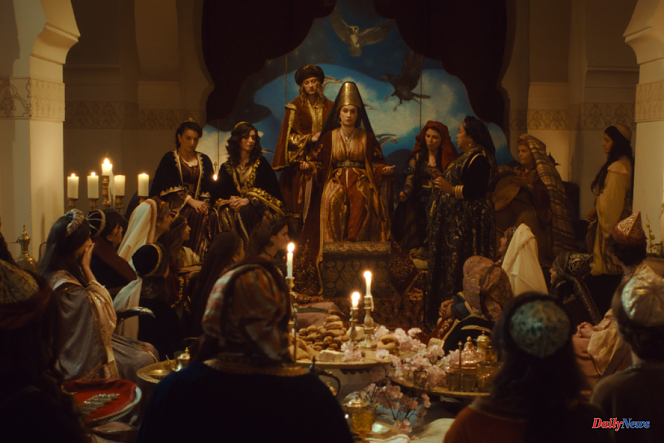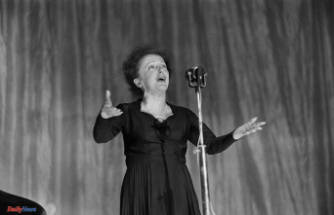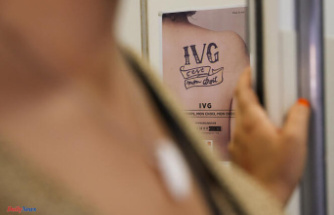Algerian actress Adila Bendimerad plays Queen Zaphira in The Last Queen, a film released on April 19, which she wrote and directed with Damien Ounouri.
Meeting with an actress-director inspired by “the Algerian women with whom I lived”, by “those with whom I live today”.
Adila Bendimerad This week, twelve new theaters are hosting the film and we are very happy about that. The reactions are shocking. Algerians living in France, French of Algerian origin, French, people from elsewhere, all are very moved by this story and this Algeria that they did not know.
In the cinema, our country is still seen mainly through colonization or the years of terrorism. However, we can see that the public is passionate about this queen but also for this heritage which has never existed on the screen. It is the first Algerian period film in costumes and with the languages of the time that are not reduced to onomatopoeia. However, it is not just a film of burnous and sabers.
We did not invent Zaphira. Even today, all over Algeria, stories circulate about this queen. It is legendary, part of our intangible heritage. We could have chosen a better identified, more documented historical character, but what interested us were the unexplored, uncertain areas of this history.
We are obviously much more informed about the male characters, like Aroudj Barberousse (played by Dali Benssalah), a very romantic character, strong with his silver arm, both feared and formidable, and liberator of Algiers against the Spaniards.
Zaphira constantly oscillates between disappearance and appearance. It reminds me of Algiers, its martyred Casbah, more than 80% razed to the ground during the colonial period. Their fates are similar. They have been erased. This is ultimately the reason for our stubbornness with Damien: to end this double erasure of a woman and a city. It's poetic and it creates a mythology.
That of a woman who improvises, who evolves. If King Salim Toumi (Mohamed Tahar Zaoui), her husband, had not died, she probably would not have left the palace. But the threats hanging over Algiers, this new population arriving with the Corsairs, this upheaval in history in the 16th century will open the doors of power to it. She emerges from invisibility. By saving her son, she saves Algiers. That's when it gets really interesting.
Yes, the film could have been called Les Reines. Chegga (Imen Noel) is part of the tradition, that of the kings of Algiers who always married a Kabyle princess for political and military reasons. When she first appears, she observes the men talking about politics behind her moucharabieh. She would like to intervene but cannot.
And then there is the Scandinavian wife of Aroudj (Nadia Tereszkiewicz). At one point she exclaims, "I wanted to harm Zafira but she reminds me of when I was a slave and struggling alone. She has done everything for her man, worked in the shadows, but he rejects her when he is about to achieve his goal: to conquer Zaphira and Algiers.
We wanted to tell this little-known story through women. But we worked together. And here again, we are not necessarily where we are expected. I wrote most of the scenes where the Corsairs are rocking some kinda "fat" stuff. I was raised with boys, I only had brothers. As for the sentimental scenes, they were essentially written by Damien. He grew up among women!
Some feminists have also pointed out to me that Zaphira is not enough. But it's not because I'm an activist that I'm going to talk about Zaphira. She did not theorize feminism. It is not easy to go beyond the frame, to go into the public space. Those who dared to do so were and are originals. My source of inspiration are Algerian women, those with whom I have lived, those with whom I live today. It makes for a somewhat androgynous film.
In Algeria, when we do theater or cinema, there are always roles where the woman is very impressive when she comes out of her hinges. In Kindil El Bahr, the one I play is not a revolutionary. She is on the beach with her children, chaperoned by her mother. She is waiting for her husband. When she understands that he will not come, she refocuses on herself, enters the water, begins to do tricks, to free herself. It is already a "precreature". It is only after her death that she becomes a vengeful sea monster. I really like these characters who leave space for feeling, for the entrance of the world into them and who come out of it transformed. I always come back to these women crossed.












